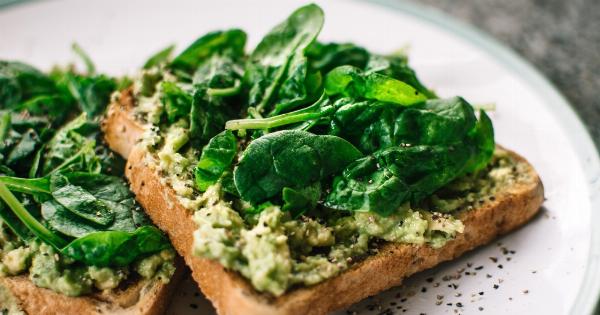With increasingly busy lifestyles, many people rely on pre-packaged and processed foods as a convenient solution for their meals.
However, these seemingly convenient options often come loaded with dangerous food additives that can have serious health implications. By preparing your own meals, you have complete control over the ingredients you use, ensuring that you and your loved ones stay safe from these harmful additives.
The dangers of food additives
Food additives are substances added to food during processing to enhance flavors, improve texture, increase shelf life, and prevent spoilage.
While not all additives are harmful, there are several that have raised concerns due to their potential adverse effects on human health.
Artificial colors and flavors
Artificial colors and flavors are commonly found in processed foods, baked goods, candies, and beverages. While they may make food look more appealing or taste better, many artificial colors and flavors have been linked to various health problems.
Some synthetic food dyes have been associated with hyperactivity in children, asthma, allergic reactions, and even cancer.
Preservatives
Preservatives are added to foods to prevent spoilage and extend their shelf life.
However, certain preservatives like sodium nitrate/nitrite, commonly used in processed meats, have been linked to an increased risk of cancer, particularly colorectal cancer. Additionally, sulfites used in dried fruits and processed foods can trigger asthma attacks and allergic reactions in susceptible individuals.
Artificial sweeteners
Artificial sweeteners are often used as a sugar substitute in diet sodas, energy drinks, and “sugar-free” products.
While they provide the sweet taste without the calories, some studies have raised concerns about their potential health risks. Some artificial sweeteners, such as aspartame, have been associated with headaches, dizziness, and even neurological disorders.
Genetically modified organisms (GMOs)
Genetically modified organisms, or GMOs, are plants or animals that have been genetically altered in a laboratory. Many processed foods contain GMO ingredients, such as genetically modified corn, soy, and canola oil.
While the long-term health effects of consuming GMOs are still debated, some studies suggest potential risks, including allergic reactions and antibiotic resistance.
Why preparing your own meals is the solution
By preparing your own meals, you can avoid or minimize the use of dangerous food additives. Here are some reasons why taking control of your food choices can protect you and your family:.
1. Choose wholesome ingredients
When you cook your own meals, you have the freedom to select high-quality, wholesome ingredients. Opting for fresh fruits and vegetables, whole grains, lean proteins, and unprocessed foods reduces your exposure to harmful additives.
2. Avoid hidden additives
Many food additives are disguised under different names on ingredient lists.
By preparing your meals, you can avoid sneaky additives like monosodium glutamate (MSG), high-fructose corn syrup, and artificial sweeteners, as you have full knowledge of what goes into your dishes.
3. Customize flavors and spices
When cooking at home, you can experiment with various natural herbs, spices, and seasonings to enhance the flavors of your meals.
This allows you to skip artificial flavor enhancers and reduce your reliance on pre-packaged spice mixes that often contain additives.
4. Minimize exposure to allergens
If you or your family members have allergies or sensitivities to certain ingredients, preparing your meals allows you to carefully control what goes into your food and avoid potential allergens.
5. Portion control and balanced nutrition
Preparing your own meals encourages portion control and the ability to create balanced meals.
By incorporating a variety of nutrient-dense ingredients, you can ensure you’re getting an adequate intake of vitamins, minerals, and other essential nutrients.
6. Teach healthy habits
By involving children and other family members in meal preparation, you can educate them about the importance of making healthy food choices.
Teaching them how to cook and providing knowledge about dangerous food additives can promote lifelong healthy habits.
7. Save money
While it may seem convenient to rely on pre-packaged meals, cooking at home can save you money in the long run.
Purchasing individual ingredients and cooking meals from scratch often costs less than buying processed foods, which tend to be more expensive due to packaging and marketing expenses.
8. Reduce packaging waste
Pre-packaged and processed foods come with excessive packaging, contributing to environmental waste. By preparing your meals, you can reduce the amount of packaging waste and contribute to a greener and more sustainable environment.
9. Discover the joy of cooking
Cooking can be a therapeutic and enjoyable experience. Experimenting with flavors, trying new recipes, and sharing homemade meals with loved ones can bring joy and a sense of accomplishment.
It allows you to reconnect with the food you consume and appreciate the effort that goes into each meal.
10. Take charge of your health
Ultimately, preparing your own meals empowers you to take charge of your health.
By avoiding dangerous food additives and embracing a whole, unprocessed food approach, you can support your overall well-being and reduce the risk of health problems associated with these additives.





























